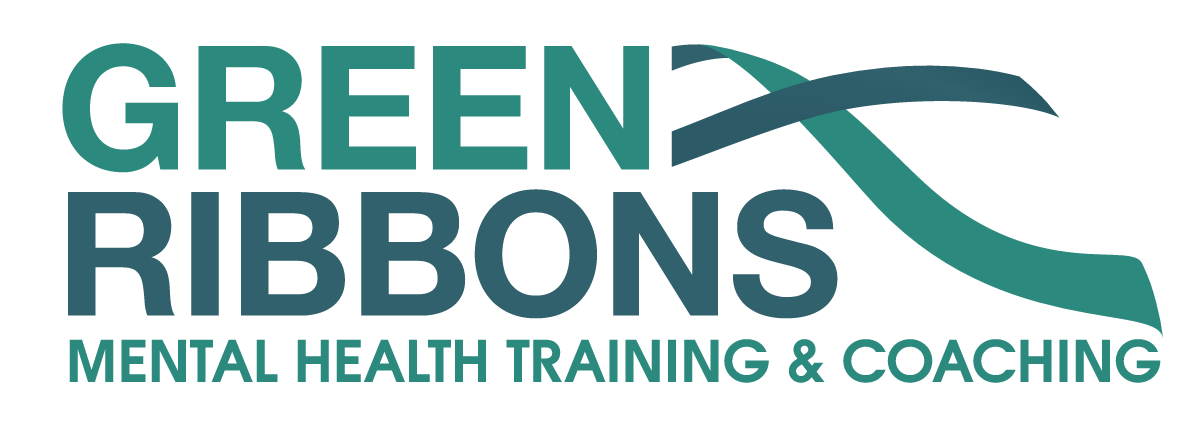1. Introduction
Gamekeepers play a vital role in the conservation and management of wildlife, responsible for maintaining the delicate balance of ecosystems, ensuring the survival of native species, and controlling invasive ones. Despite the idyllic setting, gamekeepers in Scotland face a unique set of mental health challenges that are often overlooked by society. This blog post aims to shed light on the mental health struggles of gamekeepers in Scotland and provide potential solutions to support their wellbeing.
here is limited statistical information available on gamekeepers’ mental health in Scotland specifically. However, there have been some studies and reports that provide insights into the mental health challenges faced by individuals working in the gamekeeping profession in Scotland.
- According to a study by the Scottish Government’s Rural Affairs, Climate Change and Environment Committee in 2019, gamekeepers in Scotland are at increased risk of mental health challenges such as anxiety, depression, and suicide. The report found that the isolation and pressures associated with the job, including financial and regulatory pressures, were among the main contributing factors to mental health challenges among gamekeepers.
- Additionally, a survey conducted by the Scottish Gamekeepers Association in 2017 found that 90% of gamekeepers surveyed reported experiencing some form of mental health challenge, including depression, anxiety, and stress. The same survey also found that 66% of gamekeepers felt that their job had a negative impact on their mental health.
- While these statistics are not specific to Scotland, a UK-wide survey by the Gamekeepers’ Welfare Trust in 2020 found that 92% of gamekeepers reported experiencing stress, and 39% had experienced depression. The survey also found that 46% of gamekeepers felt that their job had a negative impact on their mental health.
Overall, these studies and surveys suggest that gamekeepers in Scotland, as well as in the UK more broadly, may face mental health challenges related to their job.
2. What Mental Health factors might affect Gamekeepers in Scotland?
1. Isolation and loneliness: Gamekeepers often work in remote rural locations with limited opportunities for social interactions. This isolation may contribute to feelings of loneliness, which can negatively impact mental health.
2. Long working hours and physical demands: The job of a gamekeeper is physically demanding and can involve long hours, particularly during the hunting season. This may lead to exhaustion, stress, and burnout, which can impact mental wellbeing.
3. Unpredictable income: Gamekeeping is a seasonal occupation, which can result in an unpredictable income. Financial stress and insecurity can contribute to mental health issues such as anxiety and depression.
4. Exposure to animal death: Gamekeepers are responsible for the management of wildlife populations, which may involve culling or euthanising animals. Repeated exposure to animal death and suffering can lead to compassion fatigue and emotional distress.
5. Limited access to mental health resources: In remote areas, access to mental health professionals and support services may be limited. This can make it more difficult for gamekeepers to seek help and receive appropriate care for mental health issues.
6. Stigma around mental health: There may be a stigma associated with mental health issues in some rural communities, which can prevent individuals from seeking help or discussing their concerns with others.
7. Workplace stress: Gamekeepers may experience stress related to meeting the expectations of estate owners and managers, adhering to strict regulations, and navigating conflicts between different stakeholders, such as conservationists and hunters.
8. Weather conditions: Harsh weather conditions, common in Scotland, can make the job even more challenging and impact mental health by exacerbating feelings of isolation or contributing to seasonal affective disorder (SAD).
3. What strategies can Gamekeepers in Scotland undertake to assist their mental health?
Gamekeepers in Scotland can employ various strategies to support their mental health and wellbeing. Here are some suggestions:
- Develop a support network: Building and maintaining relationships with family, friends, colleagues, and neighbours can help reduce feelings of isolation and loneliness. Regular communication through phone calls, messaging, or video calls can help maintain connections.
- Join professional organisations: Participating in gamekeeping or rural community organisations can offer networking opportunities, professional development, and peer support.
- Set boundaries and prioritise self-care: Establishing a healthy work-life balance is important. Setting boundaries on working hours, taking regular breaks, and ensuring adequate rest can help prevent burnout.
- Engage in hobbies and leisure activities: Pursuing hobbies and recreational activities outside of work can provide a sense of accomplishment, foster social connections, and help to relieve stress.
- Practice stress management techniques: Techniques such as deep breathing, meditation, progressive muscle relaxation, and mindfulness can help manage stress and promote mental wellbeing.
- Exercise and maintain a healthy lifestyle: Regular physical activity, a balanced diet, and sufficient sleep are essential for maintaining good mental and physical health.
- Seek professional help: If experiencing mental health issues, it is crucial to seek help from mental health professionals such as therapists, psychologists, or psychiatrists. Telehealth services can be a valuable resource for those in remote areas.
- Access mental health resources: Utilise available mental health resources, such as helplines, online support groups, and self-help materials, to gain information and assistance.
- Advocate for mental health support: Encourage employers and professional organisations to prioritise mental health by providing access to resources, training, and support services.
- Challenge stigma: Promote open conversations about mental health and challenge stigma in the workplace and the community.
By implementing these strategies, gamekeepers in Scotland can take a proactive approach to managing their mental health and fostering overall wellbeing.
4. What mental health resources are available to Gamekeepers in Scotland?
There are several mental health resources available to gamekeepers in Scotland, which can provide support, advice, and assistance. Some of these resources include:
- National Health Service (NHS) Scotland: The NHS provides mental health services, including counselling, therapy, and psychiatric care. Gamekeepers can consult their General Practitioner (GP) to access these services, or refer themselves to psychological therapies, depending on the region. https://www.nhsinform.scot/campaigns/mental-wellbeing
- Breathing Space: A free, confidential helpline (0800 83 85 87) offering support for individuals experiencing low mood, depression, or anxiety. The service operates 24 hours on weekends and from 6 pm to 2 am on weekdays. https://breathingspace.scot/
- Samaritans: A 24/7 helpline (116 123) providing confidential emotional support for people experiencing feelings of distress or despair, including those who may be feeling suicidal. https://www.samaritans.org/scotland/how-we-can-help/contact-samaritan/
- RSABI (Royal Scottish Agricultural Benevolent Institution): A charity providing emotional, practical, and financial support to individuals and their families involved in Scottish agriculture, including gamekeepers. The RSABI helpline (0300 111 4166) offers emotional support, as well as assistance with accessing mental health services. https://www.rsabi.org.uk/
- Scottish Association for Mental Health (SAMH): An organisation that provides mental health support and services, including community-based services, peer support, and self-help resources. https://www.samh.org.uk/
- Mind: A mental health charity providing information, support, and advice for people experiencing mental health issues. Although based in England and Wales, Mind’s website offers a wealth of resources that are accessible to individuals in Scotland as well. https://www.mind.org.uk/
- Rural Wellbeing: A project run by Support in Mind Scotland, focused on promoting mental health and wellbeing in rural communities. The project offers resources and support tailored to the unique needs of rural residents, including gamekeepers. https://www.ruralwellbeing.org/
- Telehealth services: Online and phone-based mental health services can help overcome barriers related to distance and accessibility. There are several telehealth providers in the UK offering services such as counselling, therapy, and psychiatric care.
It is essential for gamekeepers to be aware of these resources and to seek help when needed. Early intervention and support can make a significant difference in managing mental health and promoting overall wellbeing.
5. Why should Gamekeepers do a mental health awareness course?
Gamekeepers, like any other professionals, can benefit from participating in a mental health awareness course for several reasons:
- Increased self-awareness: Mental health awareness courses can help gamekeepers better understand their own mental health and recognise the signs of stress, anxiety, depression, or other mental health issues. This self-awareness can lead to early intervention and support, promoting overall wellbeing.
- Stigma reduction: By participating in a mental health awareness course, gamekeepers can challenge and reduce the stigma associated with mental health issues in their workplace and community. This can create a more supportive environment and encourage open conversations about mental health.
- Improved mental health literacy: A mental health awareness course can equip gamekeepers with the knowledge to identify and understand various mental health conditions. This improved literacy can help them seek appropriate support and resources for themselves and others.
- Enhanced communication skills: Mental health courses often include training in empathetic and active listening, which can help gamekeepers better support their colleagues and friends who may be experiencing mental health challenges.
- Prevention and early intervention: Understanding the risk factors and early warning signs of mental health issues can help gamekeepers take proactive steps to maintain their wellbeing and support their peers. Early intervention is crucial in mitigating the impact of mental health problems.
- Building a supportive workplace culture: Mental health awareness courses can provide gamekeepers with the tools to foster a supportive and inclusive workplace culture. This can lead to higher job satisfaction, increased productivity, and better overall mental health.
- Compliance with regulations: In some cases, mental health training may be required or recommended by regulatory bodies or employers to ensure compliance with health and safety regulations and best practices.
By undertaking a mental health awareness course, gamekeepers can not only improve their own mental health and wellbeing but also contribute to a more supportive and inclusive environment within their profession and the broader community. Scottish Mental Health First Aid (SMHFA) is a training program developed in Scotland to equip individuals with the skills and knowledge to provide initial support to someone experiencing mental health problems or who is in a mental health crisis. The goal of SMHFA is to promote early intervention, reduce stigma, and increase awareness of mental health issues in the community. Green Ribbons has developed a tailored SMHFA course for Gamekeepers, addressing some of the unique issues in the sector, based on the personal experience of family members who work within the industry. You can out more at our page on: Scottish Mental Health First Aid for Gamekeepers.
6. Conclusion
Gamekeepers in Scotland face unique mental health challenges due to factors such as isolation, long working hours, unpredictable income, and limited access to mental health resources. It is crucial for gamekeepers to prioritise their mental wellbeing by developing support networks, setting boundaries, engaging in self-care, and seeking professional help when needed. Mental health resources, including national helplines, local support services, and telehealth options, are available to assist gamekeepers in managing their mental health.
One proactive approach that gamekeepers can take to support their mental health is participating in mental health awareness courses. These courses provide invaluable knowledge and skills that can help gamekeepers better understand their own mental health, identify early warning signs, and create a supportive work environment. By fostering open conversations about mental health and challenging the stigma surrounding mental health issues, gamekeepers can contribute to the overall wellbeing of their profession and their community. Ultimately, promoting mental health awareness and support is essential for ensuring the long-term sustainability and success of the gamekeeping profession in Scotland.
Scottish Mental Health First Aid (SMHFA) For Gamekeepers
Green Ribbons has developed a Tailored Training Course specifically designed for Gamekeepers
Find out More










